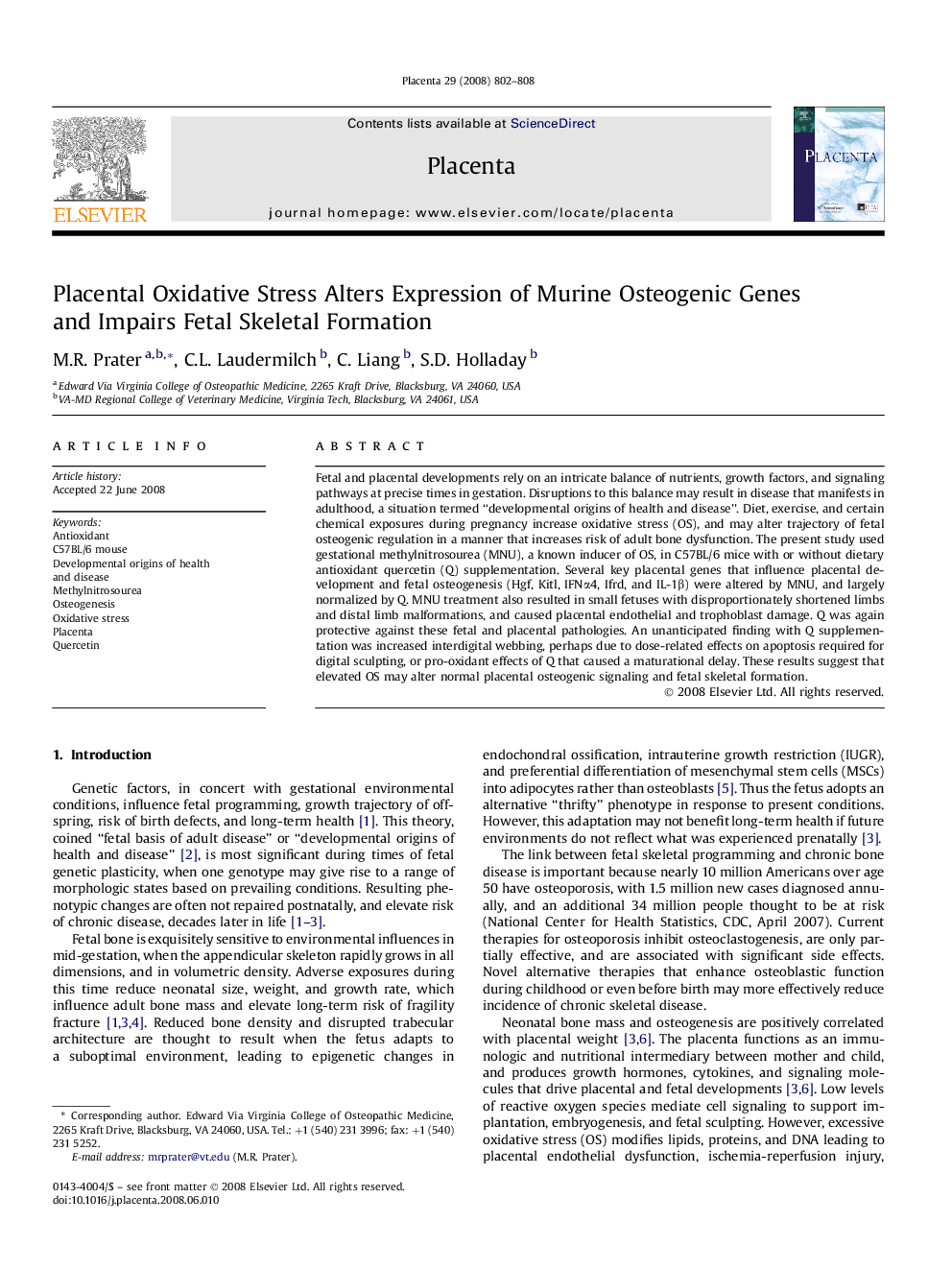| Article ID | Journal | Published Year | Pages | File Type |
|---|---|---|---|---|
| 2790063 | Placenta | 2008 | 7 Pages |
Fetal and placental developments rely on an intricate balance of nutrients, growth factors, and signaling pathways at precise times in gestation. Disruptions to this balance may result in disease that manifests in adulthood, a situation termed “developmental origins of health and disease”. Diet, exercise, and certain chemical exposures during pregnancy increase oxidative stress (OS), and may alter trajectory of fetal osteogenic regulation in a manner that increases risk of adult bone dysfunction. The present study used gestational methylnitrosourea (MNU), a known inducer of OS, in C57BL/6 mice with or without dietary antioxidant quercetin (Q) supplementation. Several key placental genes that influence placental development and fetal osteogenesis (Hgf, Kitl, IFNα4, Ifrd, and IL-1β) were altered by MNU, and largely normalized by Q. MNU treatment also resulted in small fetuses with disproportionately shortened limbs and distal limb malformations, and caused placental endothelial and trophoblast damage. Q was again protective against these fetal and placental pathologies. An unanticipated finding with Q supplementation was increased interdigital webbing, perhaps due to dose-related effects on apoptosis required for digital sculpting, or pro-oxidant effects of Q that caused a maturational delay. These results suggest that elevated OS may alter normal placental osteogenic signaling and fetal skeletal formation.
